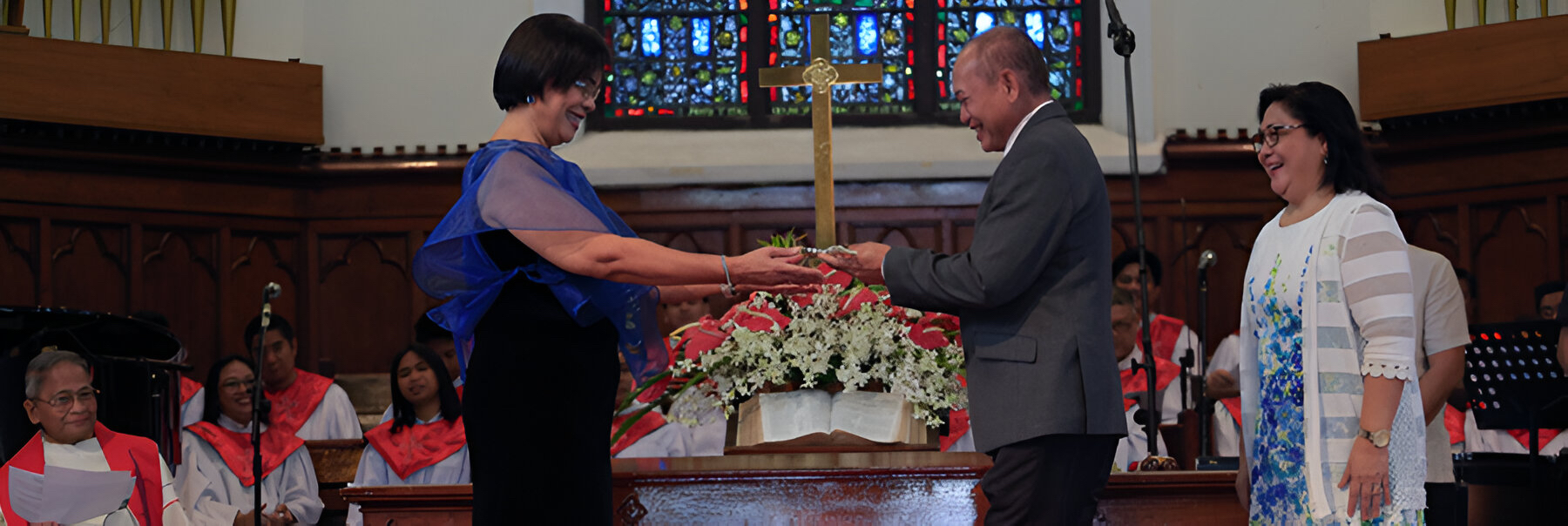Board of Trustees
Officers
Mr. Ricardo A. Balbido, Jr., Chair
Atty. Fema Christina P. Sayson, Secretary
Members
Engr. Emmanuel D. Abellanosa
Dr. Epifania D. Anfone
Mr. Eduardo A. Bangayan
Dr. Marl V. Ferenal
Bishop Melzar D. Labuntog
Dr. Evangeline B. Manjares
Atty. Mildred A. Pfleider
Atty. May S. Pono
Mr. Keith Arleigh D. Quebral
Mrs. Fenina T. Rodriguez
Mrs. Grace A. Ty
Ex-Officio
Dr. Betty Cernol-McCann (President)

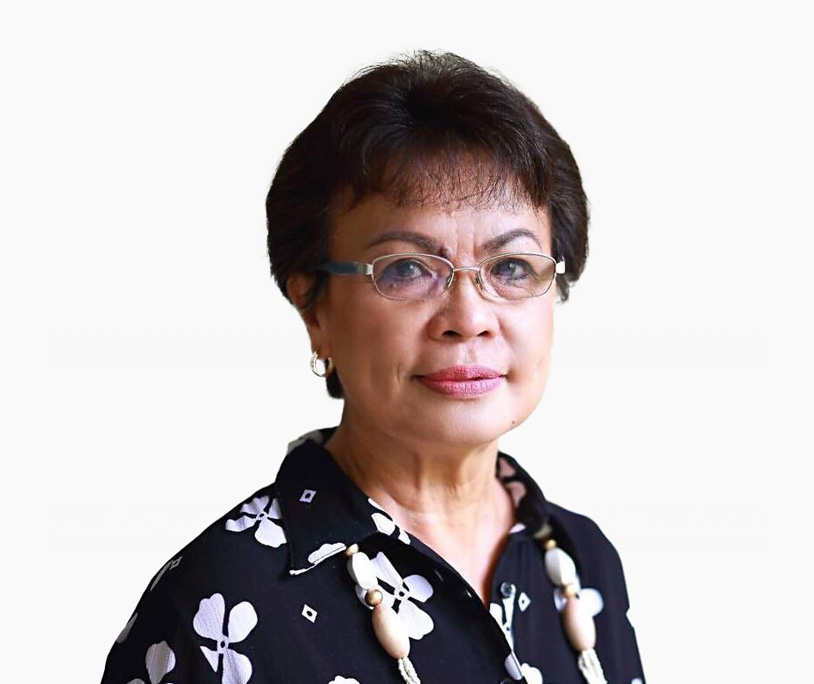
Dr. Betty Cernol-McCann
University President
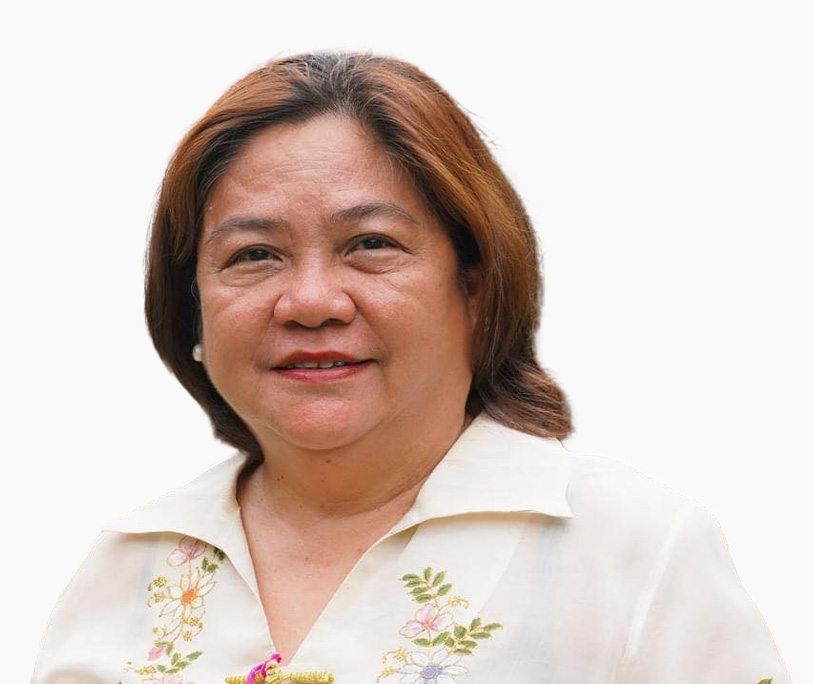
Dr. Margaret Helen U. Alvarez
Interim Vice President for Academic Affairs and Research, concurrent Dean of the Graduate Programs

Atty. Eduisa Rositte C. Diocos
Chief Finance Officer
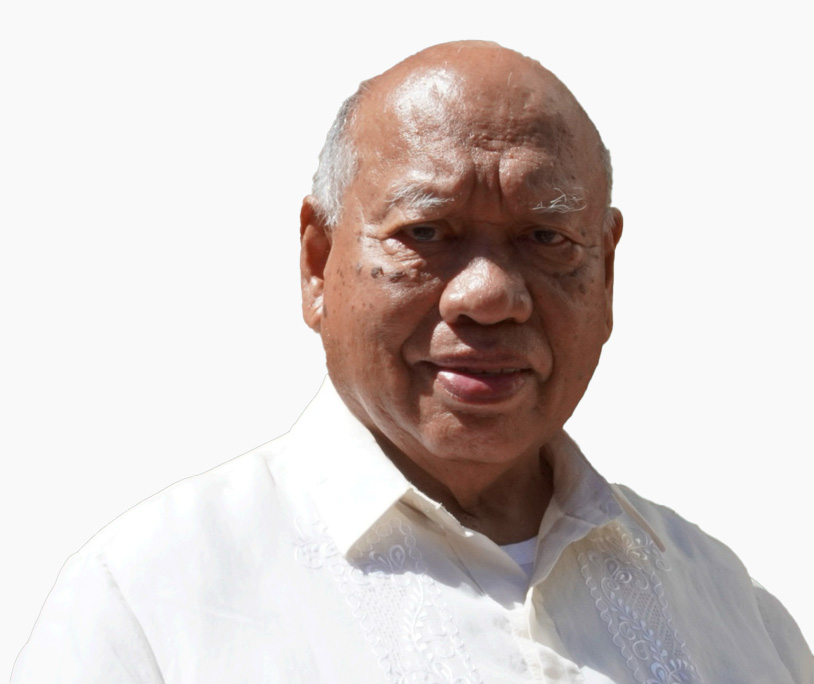
Rev. Jonathan R. Pia
Senior Pastor
Atty. Marie Chielo H. Ybio
University Legal General Counsel
Dr. Lourdes Angela F. Piñero
Chief, Organizational Development & Human Resource Management (OD & HRM)
Dr. Chuchi S. Montenegro
Chief, Information and Communications Technology Division
Dr. Warlito S. Caturay Jr.
Chief, Office of Media and Public Affairs
Ms. Carmille C. Ramos
Chief Accountant
Mrs. Marcia Luz T. Salcedo
Budget Officer
Ms. Glynnis Jean C. Casiño
OIC, Strategic Partnership and Enterprise Development
Mr. Ruben N. Bokingo
Director, Office of Alumni and External Affairs
Asst. Prof. Ana Vee A. Riconalla
Manager, Food and Auxiliary Services
Dr. Mae Brigitt Bernadel L. Villordon
Interim Assistant Vice President for Academic Affairs; concurrent Dean, College of Arts and Sciences
Dr. Robert S. Guino-o
Interim Executive Director, Research Publication and Innovation; concurrent Director of the Silliman University Angelo King Center for Research and Environmental Management (SUAKCREM)
Dr. Ralton D. Bancairen
Interim Chief, Office of Registration and Records Management
Mrs. Yolanda Elenita Luz V. Maxino
Head, Admissions Office
Dr. Beulah Rose R. Torres
Director, Office of Quality Instruction and Excellence
Dr. Enrique G. Oracion
Director, Research and Innovation Office
Mr. Novee E. Maestrecampo
Director, Office of Community Engagement and Service-Learning
Dr. Diomar C. Abrio
Director, Culture and Arts Council
Ms. Blanchie M. Utzurrum
Head, Technical Educational Vocational and Entrepreneurial Center
Dr. Edna Gladys T. Calingacion
Dean, Office of Student Services
Asst. Prof. Sarah Angiela A. Ragay
University Librarian, Robert B. & Metta J. Silliman Library
Asst. Prof. Dionesio V. Piñero II
Director, University Athletics
Dr. Dave E. Marcial
Director, Mariano C. Lao Global Studies Center
Mr. Rigel D. Suarez
Director, Instructional Media and Technology Center
Mrs. Marie Christel R. Kho
Manager, Claire Isabel McGill Luce Auditorium
Dr. Elve O. Nasvik
Principal, Early Childhood
Asst. Prof. Ethel R. Burgos
Principal, Elementary School
Asst. Prof. Brenda B. Boladola
Principal, Senior High School
Asst. Prof. Kristine N. Busmion
Principal, Junior High School
Dr. Jose Edwin C. Cubelo
Dean, College of Agriculture
Dr. Mae Brigitt Bernadel L. Villordon
Dean, College of Arts and Sciences
Dr. Alana Leilani C. Narciso
Associate Dean, College of Arts and Sciences
Dr. Wilma Tejero-Libarios
Dean, College of Business Administration
Asst. Prof. Joy M. Dy
Dean, College of Computer Studies
Dr. Van Cliburn M. Tibus
Dean, Divinity School
Dr. Gina F. Bonior
Dean, College of Education and Supervising Dean of the SBE
Dr. Elve O. Nasvik
Associate Dean, College of Education
Dr. Maria Lorena L. Tuballa
Dean, College of Engineering and Design
Dr. Elizabeth Susan Vista-Suarez
Dean, College of Performing and Visual Arts
Atty. Florin T. Hilbay
Dean, College of Law
Dr. Madeline B. Quiamco
Dean, College of Mass Communication
Dr. Theresa A. Guino-o
Dean, College of Nursing
Dr. Walden R. Ursos
Dean, Medical School
Dr. Ferdinand M. Mangibin
Dean, School of Public Affairs and Governance
OIC SA, Graduate Program
Dr. Teodora A. Cubelo
Director, Institute of Clinical Laboratory Sciences
Dr. Janet S. Estacion
Director, Institute of Environmental and Marine Sciences
Dr. Lily Ann D. Bautista
Director, Institute of Rehabilitative Sciences
Engr. Lorena S. Mariño
OIC, Facilities Management
Dr. Joan Oliveros
OIC University Physician
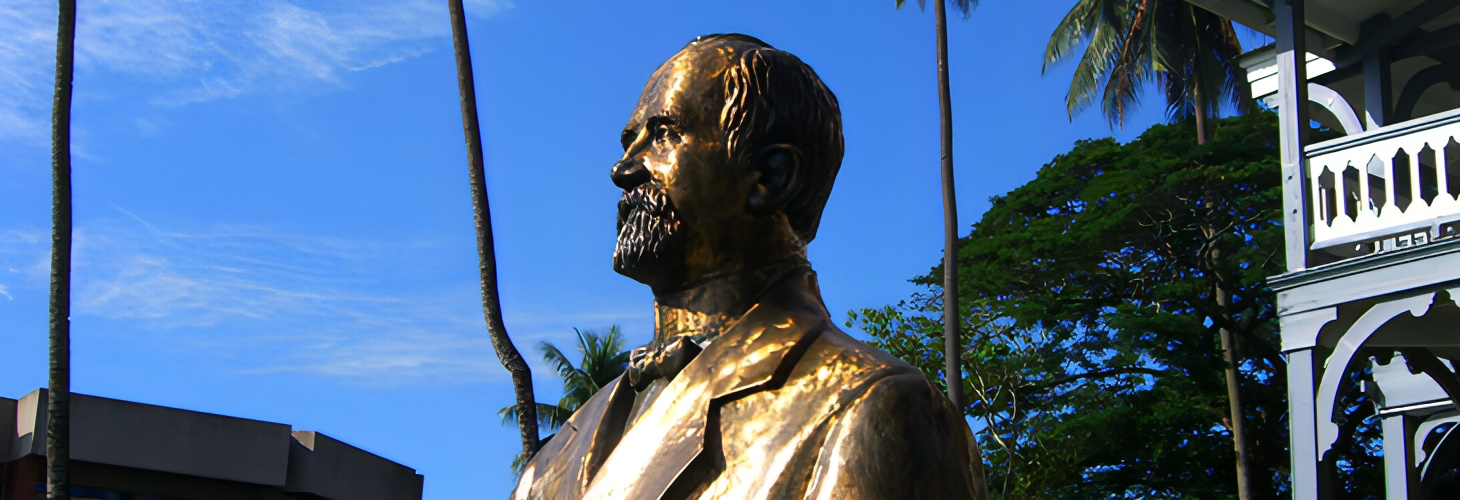
VISION
| A Christian institution leading in total human development for the well-being of society and environment. |
MISSION
| Infuse into the academic learning of our stakeholders core values anchored on the gospel of Jesus Christ towards developing individuals of faith, character, and competence. |
| Instill in all members of the University community social consciousness, care for the environment, and a deep sense of justice for societal well-being. |
| Cultivate resilient and globally competitive academic community competent in knowledge production and innovation, positively contributing to sustainable development. |
GOALS
Silliman aims to have…
| 1. Vibrant Christian life among students, faculty, staff, administrators, alumni, and the community |
| 2. Diverse studentry and globally competitive graduates with character through academic excellence |
| 3. A Community of leading academics, knowledge producers, and highly efficient human resource |
| 4. World-class facilities, innovative systems and processes responsive to the needs of the stakeholders |
| 5. Viable and sustainable financial and other resources |
| 6. Mutually supportive relationship with the alumni imbued with a profound sense of the Silliman spirit |
| 7. Heightened social awareness and constructive engagement in peace, justice, and national and global development initiatives |
| 8. Responsible and accountable stewards of the environment and other resources |
VALUES
Silliman University as a Christian Institution promotes the values of:
| Love |
| Patriotism |
| Diversity and Inclusiveness |
| Excellence |
| Creativity and Innovation |
| Justice with Compassion |
| Honesty and Integrity |
| Accountability and Transparency |
| Respect and Humility |
| Care for the Environment |
By-Laws

Code of Christian Collegiality
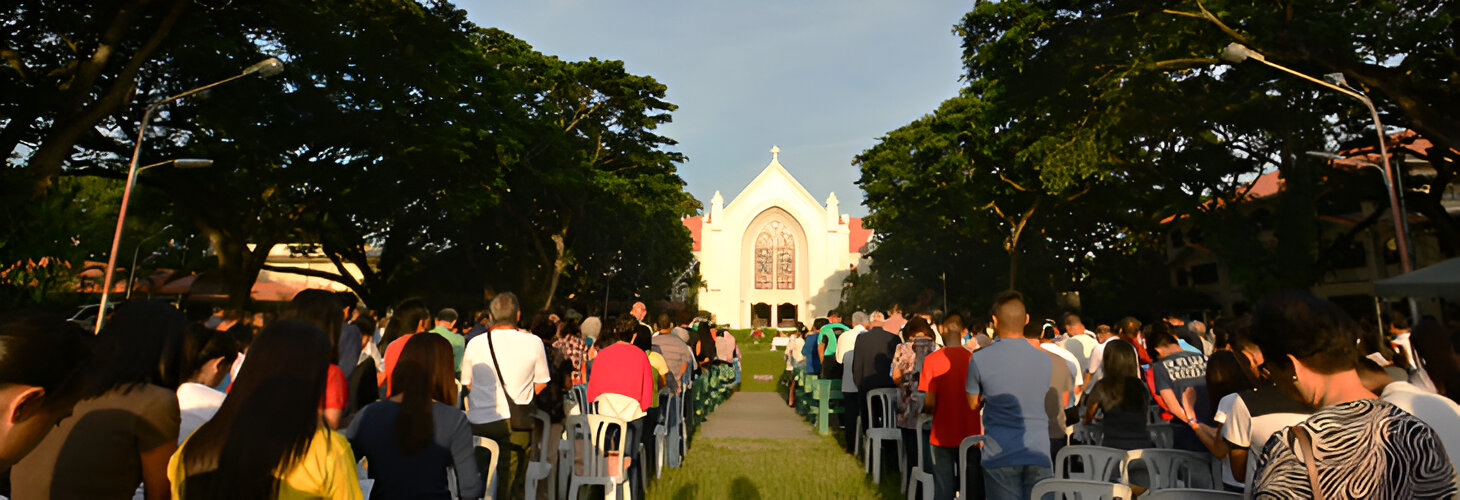
Silliman University celebrates friendships predicated on Christian fellowship. Its faculty, staff and students form a community of friends and colleagues who all seek to live and to relate to each other in accordance to this Code.
I. GENERAL STATEMENTS
We recognize that
- Silliman University is an institution of higher learning founded on and proclaiming the evangelical tradition of the Christian faith and seeks unity and cooperation in the best tradition of the ecumenical movement;
- Silliman University is a ministry of multilevel Christian education, and as such the University recognizes and respects its own Christian ideals, heritage and traditions, and its faith on Jesus Christ as “the Way, the Truth and the Life”, in the sense stated in the Holy Bible;
- Silliman University is an enabler of great learning by building in each person a unity of competence, character and faith and with a deep sense of social responsibility;
- Silliman University is a community of persons seeking to build personal and collective development, and which affirms the fundamental dignity of all human beings and of the integrity of God’s creation;
- Each person in the University – faculty, staff, student, alumni, friend – is a repository of the unique heritage and traditions of Silliman University; each embodying a part of its heritage and tradition; and
- Silliman University is a corporation governed by the laws of the Republic of the Philippines and derives both entitlements from and obligations to the same.
II. COLLEGIAL AFFIRMATION
Professional Conduct
- Everyone in Silliman is a professional colleague to the others – the faculty, students, staff, alumni, guests, friends – who all exercise their respective roles and functions which all form part of the University system. Each one is to relate to the others in the best professional and personal manner as would accord the highest dignity and value to each one –
- faculty to other faculty, and to all staff, students, alumni and friends;
- staff to other staff, and to all faculty, students, alumni and friends and
- students to other students, and to all faculty, staff, alumni and friends.
- As colleagues in the University, everyone is expected to accord everyone else the highest esteem, the most refined language of respect, and the best work and quality of service or output. No one should solicit from anyone, any work, service or output that is not directly relevant to a professional undertaking or relationship occasioned in the classroom or other recognized and specified workplaces in the University or under any related learning experience (RLE), service learning or volunteerism program approved by the University;
- Students are expected to fully understand and be supportive of the vision, mission and goals of the University and of their respective colleges and departments.
- Honesty. Everyone is expected to observe honesty in all academic conduct and work in the University.
- Discipline. Everyone is .expected to observe the highest level of discipline in complying with time, academic, ethical and other requirements, policies, and laws.
- Stewardship. Everyone is expected to respect any property of the University and of other members of the University;
- Everyone should refrain from using one’s position or function in the University whether as faculty, staff or student, to gain and obtain personal entitlements, advantages or benefits of any kind (monetary or otherwise) that are not sanctioned nor allowed by the terms of one’s professional engagement or contracted employment in the University;
Gift giving and gift-receiving, whether in cash or in kind, in consideration of any special act in giving a passing grade, granting of honors, or for other entitlements, are strictly prohibited. - Each and every one should protect each other from any form of harassment wherein by reason of superior power, capacity to intimidate, or moral ascendancy, a person exacts services, goods, or favors from another, whether or not with malice or for gains.
Faculty members, administrative personnel or staff, student leaders or any person who exercises moral ascendancy over another are prohibited from using sexually colored language, insinuating sexual interest, or gaining sexual favors. - Service. All members of the community are encouraged to express social consciousness or perform religious duty in voluntary service for those in need within the community and the larger society.
- Equal opportunities and Non discrimination:
- Everyone must respect and be tolerant of the religion, ethnicity, opinion and gender orientation of the other members of the University.
- Teachers shall in no way consider a student’s course, gender, marital status, family status, gender orientation, religion, age, disability, race, ethnicity and socio economic status as a factor in the computation of grades.
- No person shall be given special treatment on the basis of congeniality, relation, status or anything of such nature.
- Scholarship. The development of knowledge depends upon high personal standards of scholarly conduct and mutual trust. Members of the University should respect the professional activities of their colleagues, and should not engage in actions that would impede the reasonable professional activities of colleagues. Moreover, everyone should not have prejudice over certain individuals, communities, agencies or institutions nor against a colleague for personal advantage. Professional conflicts should be dealt with in a collegial manner in accordance with the rules or policies of the University.
- Confidentiality. Everyone should maintain confidentiality of any information regarding their colleagues and should not undermine the confidentiality of academic research or publicize confidential proceedings of appointment and promotion committees. Student records are considered confidential unless confidentiality is waived or allowed by law or by university policy.
III. ENTITLEMENTS
a. Academic Freedom
- Everyone has the general duty to promote the growth and spread of knowledge of the highest academic standards, protect academic freedom, and promote a working environment appropriate to these aims. Originality and quality should always take precedence over quantity as criteria for assessing academic performance.
- Teachers are obliged to provide and students are entitled to be provided in a timely manner, adequate information on the content of courses, program choice, modes of assessment and appeals procedures, as well as a dynamic and relevant course syllabus or outline.
- Students are also entitled to prompt and fair evaluation of their work and/or class performances; and to the keeping of full and proper records of their progress.
- Teachers shall establish classroom engagement strategies that support differentiated learning in a way that respects the dignity of all students.
- Teachers shall seek to engage students in order to develop teaching strategies that are appropriate.
- A grievance procedure shall be available to all members of the University and such grievance procedure should ensure the respect for basic rights of individuals pursuant to laws, regulations and policies of the University.
- Research activities should be reported accurately and disseminated as is reasonable. Members of the University should not undertake sponsored research which would damage or impair the academic integrity of their professional conduct.
- Intellectual property rights. Members of the community should not claim credit for the research and intellectual property of others, but should give due credit to the contributions of others in collaborative work.
b. Human Rights
- Everyone shall be accorded the fundamental right to information, freedom of association, of speech, and of religion, equal opportunities and (non discrimination, pursuant to the constitution, existing laws and university policies and regulations.
- Each one is entitled to his political opinion and to be involved in political affairs in such manner as is allowed under the constitution, the laws, and the policies of the University.
History of Silliman University
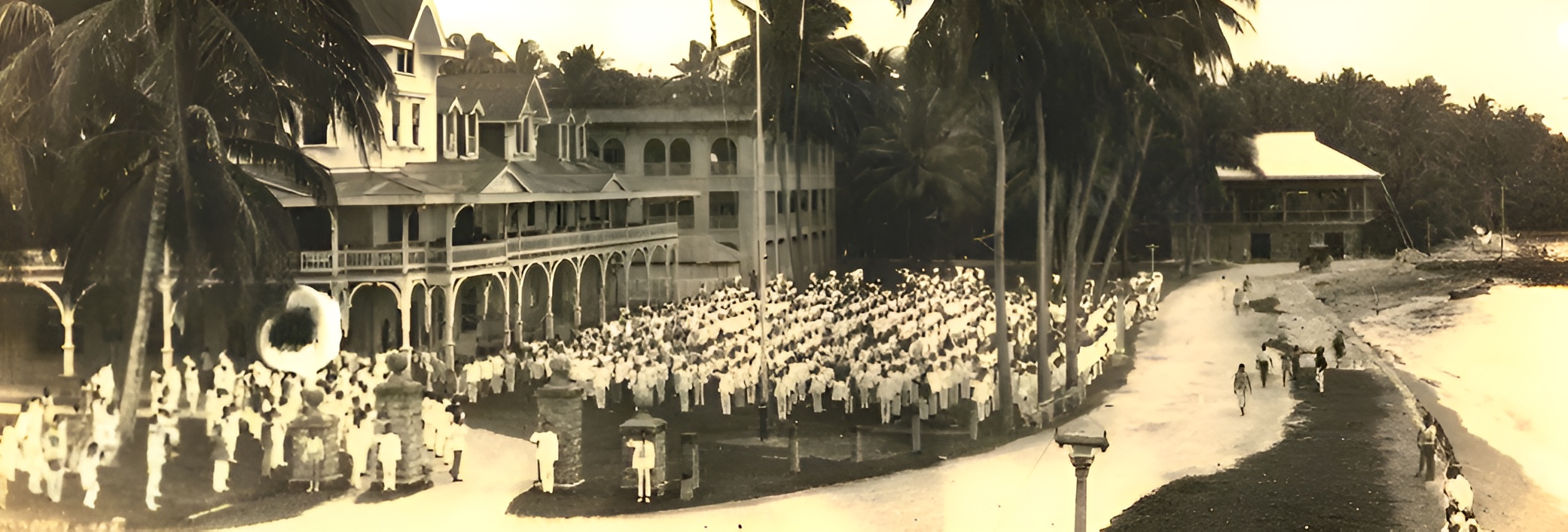 Silliman’s Journey of Over a Century
Silliman’s Journey of Over a Century
To most Americans in the late 1800, Dumaguete was a name their tongue was still to master. It was unfamiliar to them. Even the Philippines, which at that time was still recovering from the onslaught of the Spanish-American War, was not on the immediate list for a Presbyterian mission. But it took the vision and commitment of a man to turn this around.
The late Dr. Arthur Carson, third Silliman president, wrote in his book how a man’s strong resolve to help shape Philippine education paved the way for the establishment of Silliman University. This man was Dr. Horace B. Silliman, a retired businessman of the town of Cohoes in New York State.
In 1899, Dr. Silliman appeared at the office of the Presbyterian Board of Foreign Missions with the conviction that the Filipino people would need a new kind of education. To support this, he contributed the initial sum of $10,000 toward the founding of an industrial school. Legend has it that the Board Secretary was surprised and explained that the Board had only begun to consider a mission in the Philippine islands. At that time, news was fresh on the naval victory of Admiral Dewey over the Spanish fleet in Manila Bay. The Board Secretary thought it would be too early for a school.
But the visitor persisted. Something had caught his imagination about these islands, and the people whom he had never seen and whom he would never meet.
Dr. Silliman had long been an active supporter of schools and colleges. Among such institutions was Hampton Institute of Virginia, and his proposal to the Presbyterian Board was for an industrial school in the Philippines on the Hampton model.
The mission in the Philippines started with Dr. David Sutherland Hibbard and wife, Laura, who were commissioned to head it. Three areas were considered: Cebu, Zamboanga and Iloilo. While in Cebu, someone suggested for him to make a side trip to Dumaguete. Sailing from Cebu on a Saturday night, he came out early on deck the next morning and saw ‘the unsurpassed drama of a Dumaguete morning from the sea.’
It was told that the friendly attitude of the people and the caliber of the local officials attracted him to Dumaguete, a ‘place of health and beauty.’
On August 28, 1901, Silliman Institute was established. As Dr. Hibbard described the modest beginning of Silliman half a century later:
‘There were fifteen boys that first morning. The equipment consisted of four desks about ten feet long, two tables and two chairs, a few McGuffey’s Readers, a few geographies, arithmetics and ninth-grade grammars. I was President; Mrs. Hibbard was the faculty.’
Enrollment in the university grew gradually to include students from Asian countries. The year 1912 marked the admission into the university of the first female student, Pura Blanco.
Silliman was granted university status in 1938.
Developments on campus were interrupted by two significant events in Philippine history: World War II and martial law. But Silliman braved these historic events and left dents on the pages of Philippine history.
At the height of the war, Silliman faculty members and students evacuated to four localities in Negros Oriental, and continued rendering professional services whenever there was an opportunity. This led to the establishment of the “jungle university” in the mountain of Malabo — the first community school in the Philippines.
In 1972, when martial law was declared, Silliman was one of the first two universities closed. It was also one of the last universities allowed to resume operations after the closure. Despite the threat to life and democracy, martial law did not, however, stop students from gathering and keeping their patriotism aflame. At the basement of the Silliman University Church, in a room named the Catacombs, the ‘secret’ campus rendezvous of students continued.
The rich contribution of Silliman to Philippine history has earned it the distinction of National Landmark from the National Historical Institute on June 19, 2002.
Growth of Silliman in the early period was greatly attributable to the support of the local community. Local families shared in the vision of Dr. Silliman and believed in the educational pursuits of Dr. and Mrs. Hibbard, and accordingly offered their properties through sale and donation to expand the campus. Later developments were characterized by more infrastructure development and initiation of student activities, ranging from journalism, public speaking, performing arts, and athletics.
Silliman continues to be nurtured under administrations headed by presidents of character and tested credentials. Its thirteenth and first female President, Dr. Betty Cernol-McCann, who assumed the presidency on June 1, 2018, carries with her a strong background in Asian higher education and a large network of higher education institutions, particularly in Asia. Prior to joining Silliman, she served as Vice President for Programs of the United Board for Christian Higher Education in Asia, a New York-based not-for-profit organization with which Silliman University has long relations.
Three American presidents and nine Filipino presidents have been instrumental in paving the way to what Silliman is today and what more it can still become: Dr. David Hibbard (1901-1930), Dr. Roy Brown (1932-1936), Dr. Arthur Carson (1939-1953), Dr. Leopoldo Ruiz (1953-1961), Dr. Cicero Calderon (1962-1971), Dr. Quintin Doromal (1973-1982), Justice Venacio Aldecoa (1983-1986), Dr. Pedro Flores (1987-1989), Dr. Angel Alcala (1991-1992), Dr. Mervyn Misajon (1994-1996), Dr. Agustin A. Pulido (1996-2006) and Dr. Ben S. Malayang III (2006-2018).
Present Silliman
All of the country’s top universities would boast of offering quality education. Silliman University, which is turning 117 on August 28, 2018, is no different. But while it joins the ranks of prestigious Philippine universities, it is humbled by a gift of a location that bespeaks of the natural environment’s complement to academic learning – one feature that sets Silliman apart from the rest. Its bewitching beauty lies on the outside and within – on its sprawling green campus and the people who make life more colorful and meaningful.
Dotted with over 300 acacia trees, the Silliman campus is uniquely embraced in between views of the Cuernos de Negros mountains in its background and the Visayan sea at its frontage. The 62-hectare campus offers patches of greens on where personal relationships are nurtured, spiritual nourishment facilitated, and the concept of quality student life redefined. In 2014, Christian Universities Online included Silliman on the list of “50 Most Beautiful Christian College and University Campuses in the World” – the only one in the Philippines and one of only two in Asia.
Silliman University is a melting pot of cultures and religions. Of its overall population of more than 9,000, over 200 are international students from more than 50 countries in Asia, America, Africa and Europe. Its affiliation with the United Church of Christ in the Philippines as a Protestant university has never been a hindrance to the exercise of religious freedom. Majority of Silliman students are Roman Catholics and a good number are Muslims.
“Whole person education” is what Silliman offers. It is the holistic development of one’s competence, character and faith, transforming one into a person for others. It is the approach to learning that is encapsulated in its tri-logical ministry of teaching, healing and preaching, providing opportunities of deep reflection towards an appreciation of self in relation to the larger community. Campus life revolves around the motto Via, Veritas, Vita (the Way, the Truth, the Life). It is Silliman’s mission to develop the whole person within the Christian context and in a sound environment. Students are expected to put their education to work in service to those in need.
Granted Full Autonomous Status by the Commission on Higher Education, Silliman offers over 140 certificate, undergraduate, graduate and post-graduate programs in 19 academic units: College of Agriculture, College of Arts and Sciences, College of Business Administration, College of Computer Studies, College of Education, College of Engineering and Design, College of Law, College of Mass Communication, College of Nursing, College of Performing and Visual Arts, Divinity School, Graduate Programs, Institute of Clinical Laboratory Sciences, Institute of Environmental and Marine Sciences, Institute of Rehabilitative Sciences, Institute of Service Learning, Medical School, School of Agro-Industrial and Technical Education, and School of Public Affairs and Governance. It also offers a strong Basic Education program from Early Childhood to Senior High School.
The University is located in the charming city of Dumaguete, dubbed the “City of Gentle People”, an hour away by plane from Manila and roughly four hours by boat from Cebu. Silliman thrives in a city where the strip of restaurants offering good food along the boulevard and where everything a student needs are just a stone’s throw away. While offering the coveted “retirement getaway” environment, the city is not left behind by progress. You can find infrastructure developments and businesses sprouting in support of the city’s “University Town” concept.
It is also the conducive residential campus life that sets Silliman University apart from the other leading universities in the Philippines. The 13 regular and cooperative dormitories, including the newest Rolando Villanueva Del Carmen Honor Hall (which offers free board and lodging to top honor students), provide a home away from home to Silliman students who come from outside Dumaguete. In the dormitories, students belong to a family, a part of the bigger Silliman community. Corollary to this sense of community is the “Silliman Spirit” – an atmosphere of personal closeness, warmth, friendship and concern.
Silliman Education’s 5Cs
Silliman’s goal of building competence, character and faith anchored on the Gospel of Christ aims for the development of the whole person. It believes that success and fulfillment are achieved when one views himself or herself in relation to the larger community. Silliman therefore envisions genuine quality Christian education as a result of an interaction of experiences from at least five venues: the classroom, the Church, the cultural center, the (athletic) court, and the community.
The Classroom
The classroom is a major component of the “second home” of students. Teaching at Silliman is made to challenge students to question prevailing concepts and theories, and find meaning in them in their day to day activities. Important to Silliman University is a mentoring system that walks students through the learning process of life.
The Church
Christian faith is foundational to Silliman education. Various activities for faith nurture, education, worship, fellowship, and service are in store for Silliman students all year round. These are activities that are receptive to the changing needs and preferences of students. Church activities are designed and organized in a way that does not discriminate students from other religious denominations.
The Cultural Center
Every semester, the Cultural Affairs Committee stages five shows that put value on the appreciation for the arts at what most consider as the “cultural center of the south”: the Claire Isabel McGill Luce Auditorium. Silliman students get a taste of the works of nationally- and internationally-acclaimed literary, visual and performing artists throughout the school year. Season tickets at subsidized rates are made available to students.
The (Athletic) Court
Sports play an equally important part in the life of a Silliman student. The campus boasts of facilities for ball games, swimming, contact sports, and archery. In the field of archery, Mark Javier, the lone Filipino male archer in the Beijing Olympics, is a fresh addition to the list of Sillimanian Olympians: archers Jennifer Chan and Lisa Ygnalaga and long jumper Simeon Toribio.
The Community
Service-learning and volunteerism are vital components of all academic disciplines in the university. Students are challenged to test theories and principles through actual community work. With identified partner communities, Silliman students develop projects and programs, integrating expertise in business development, health care, legal management, and environmental advocacy. Sustaining this thrust on an international level, Silliman is active in an international service-learning program that aims for cultural understanding and a multi-sectoral approach to addressing social concerns.
Institutional Distinctions
Silliman is one of select higher education institutions in the country granted autonomous status by the Commission on Higher Education (CHED). The same government agency has also designated Silliman as a Center of Excellence in Nursing Education and Teacher Education and a Center of Development in Accountancy, Anthropology, Biology and Information Technology Education. It is also one of select universities granted membership with CHED’s Philippine Higher Education Research Network, the higher cluster of universities carefully selected based on strength in research and publications.
The University has been granted Institutional Accreditation (the highest) by the Federation of Accrediting Agencies in the Philippines, the umbrella organization of accrediting agencies. Just like other top universities, Silliman’s academic programs undergo regular evaluation by the Philippine Accrediting Association of Schools, Colleges and Universities, the Association of Schools, Colleges and Universities-Accrediting Agency, Inc., or the Association of Theological Education in Southeast Asia. It is one of Philippine universities with the most number of accredited programs. With support from the United Evangelical Mission, it is a Center for Mission Studies in Asia.
In recognition of its pioneering works and active involvement in marine conservation, Silliman was also tagged as a Center of Excellence in Coastal Resource Management (CRM) by the United States Agency for International Development. The University’s community-based CRM program has helped earn for Apo Island located off the town of Dauin the reputation of being one of the world’s best diving spots. Apo is a model of community-based coastal resource management with its story on its successful management of marine reserves cited in several international scholarly publications.
The University is a founding member of the Association of Christian Universities and Colleges in Asia. It also holds the same status in the Association of Christian Schools, Colleges and Universities, and maintains membership with other local and international organizations.
